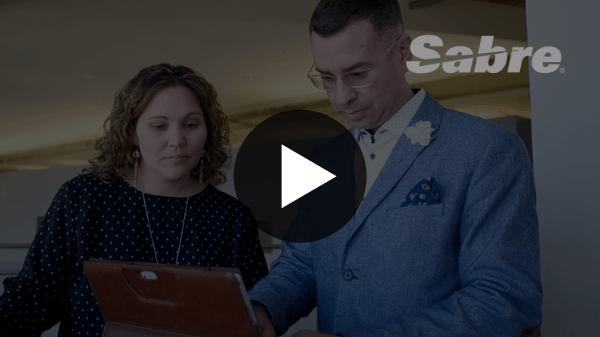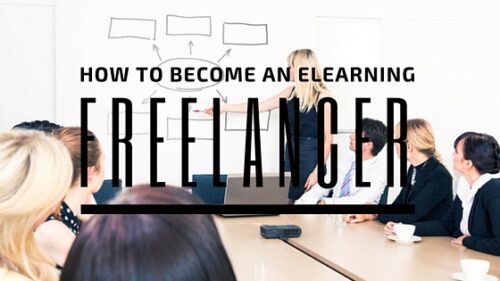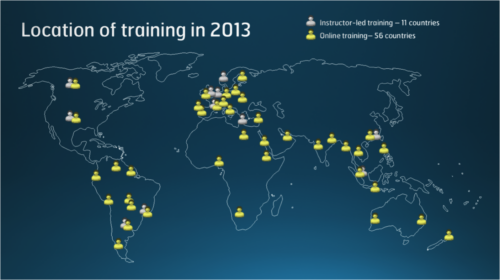How to Become an eLearning Freelancer or Startup Business
Message from the Editor:
This post is written by one of our contributing bloggers, Ant Pugh. In it he shares the realities of his experiences leaving the corporate world of eLearning and starting a business of his own. We hope his experiences will encourage and inform you.
How to Become an eLearning Freelancer or Startup Business
Getting started as an independent professional in e-learning is a challenge. In fact, I’m sure getting started as an independent professional in any industry is a daunting prospect. But recently I did just that – quit my job to work for myself. In this article I will take you through my experience so far – my first 18 months of going solo in the world of e-learning.
The Last 18 Months as a New eLearning Consultant
At the end of 2014, I made a decision to quit my job and to work for myself. It wasn’t a decision I took lightly (you can read about what prompted me to make that decision here). I was working for a huge telecommunications company in the centre of London, earning a very satisfactory salary, enjoying all the benefits that a corporate job can bring.
My role was to implement and manage an e-learning programme in an organisation that had previously only provided its staff and customers with instructor-led classroom or webinar training.
I was responsible for strategy and delivery of online training to the organisations’ global employee and customer base and would eventually require the management of a small team of instructional designers, content developers and LMS administrators.
Through blind determination and a slice of luck, the project turned out to be extremely successful. We implemented a programme that included both custom and off-the-shelf content.
Within 2 years, we had an audience of almost 4,000 people learning from 29 modular courses. The LMS became the online forum for learners to discuss all product related topics and was providing training, marketing and a variety of other resources integral for selling products and services.
We had also saved the company tens of thousands of pounds by moving much of the content online and were reaching a global audience.
However, it seems many people who move into management miss getting their hands dirty. And I was one of them. Despite the success of the project, I was no longer enjoying myself and needed a new challenge.
Getting Started as an eLearning Freelancer
So I quit my job. Boom.
I didn’t put too much thought into this. I decided that if I prepared too much, I would end up procrastinating and never do it.
And so a short, sharp exit was the best way to go. You might call me lucky, privileged, naive and probably a few other names – but I had worked hard in my corporate job, had saved up a few months’ worth of salary and felt that I had earned the right to make a bold decision like this.
I figured that once I left, found some space to relax and breath, some time at home to brainstorm and get creative, I would find my niche and be able to navigate my way through the intimidating prospect of working alone.
But I wasn’t exactly sure how I was going to put my skills to work. I felt confident designing and building e-learning courses, so I could always fall back on that right? But would that be enough?
I knew that implementing large e-learning programmes into the corporate environment had given me a unique experience – could I also put those skills to work?
I assumed that there must be companies out there that needed help with e-learning but who couldn’t afford the overhead of a full-time employee. Or who needed more specific help with this type of work.
Therefore I surmised that there would be work out there for me, I just had to go out and find it.
My First Mistake as an eLearning Freelancer
As luck would have it, I made a strong start. Via one of my connections on LinkedIn who had seen a work status update, I managed to land a small project subcontracting for a large e-learning company who needed some courses created.
This kept me going for the first few weeks. I spent the days designing e-learning, and the evenings finding an accountant, designing a logo and building a website. I was really happy and was starting to feel validated.
Then I came unstuck. At the end of the first engagement, I had no more work. How do I find another project? Where would I find more clients? I’d exhausted all avenues on LinkedIn, and the specialist recruiters didn’t have anything immediately for me to work on.
Oh no, had I made a mistake? Should I have spent more time thinking this through?
Maybe – but there was no turning back. I had to learn. I needed to discover ways of finding my own clients or more subcontracting work.
Am I a Business Owner or Freelancer?
I started scouring the Internet for blog posts that would teach me how to find clients. I subscribed to podcasts on “Lead Generation” and read books about Content Marketing. (And I wasn’t disappointed, there were thousands of resources available online to help with this).
Thanks to a series of podcasts by Seth Godin called Startup School, I realised that before I could start looking for clients, I needed to make my first real business decision – was I a freelancer or an entrepreneur?
In fact, what was the difference? I had already incorporated as a limited company, because my new accountant had advised me that that would be the best way to reduce the amount of tax I pay.
So technically, I had started a business. Did that make me an entrepreneur?
What’s the Difference between Freelancer and Entrepreneur?
To know whether I was a freelancer or entrepreneur, I needed to figure out the difference. What this really comes down to who the client is hiring. If they are hiring me for my skills, I am a freelancer. If they are hiring my business for our services, then I am an entrepreneur.
Confused? I was too.
Let’s try again – let’s use an example. Let’s say a prospective client needs to migrate their current LMS to a new cloud based platform. If the client is looking to hire me and my specific skills to undertake this work, because they know I have done this before – then I am acting as a freelancer.
However, if the client is recruiting my business to fulfil the task (i.e. they don’t care who physically does the work) and I could potentially outsource specific parts of the project to other individuals – then I am acting as a business.
I think the real difference is that as an entrepreneur, you are building something bigger than yourself. Something that if you were no longer there, wouldn’t spell the end of trading.
It was the concept of creating something bigger than me that resonated me – and made the choice of freelancer versus entrepreneur an easy one.
Fear of Discovering I’m a Business Owner
Whilst I was overwhelmed at the prospect that I was suddenly a business owner, I was also excited.
Going down this path meant I would need a highly focused proposition statement, a marketing strategy, sales pipeline, processes and procedures to ensure the experience for my clients would be the same each time, accounting software to manage invoices and expenses… the list went on.
And whilst I knew that this was all required, I didn’t realise how much time this aspect of working for myself was going to take!
This was daunting, but I was also rather excited to learn all these new skills. I was excited about reaching a wider audience. I was excited about winning bigger projects. I wanted to do this, I wanted to become an entrepreneur and build a sustainable business.
I didn’t know how this would manifest. I didn’t know where I was going. I didn’t have a clue what was going to happen. But I knew that the moment I quit my job, I now had a responsibility to make this successful – and deciding to be an entrepreneur and take destiny into my hands was an excellent first step.
Lessons Learned as an eLearning Startup
If I could go back in time and give myself a pre-resignation pep-talk, this would be the one piece of advice I would offer:
“If you want to spend the rest of your days focusing on project work, do not start a business!”
The only way that you can successfully spend the rest of your life focused on a specific discipline such as instructional design or e-learning, would be to get a full-time job or become a freelancer who subcontracts (i.e. uses other companies to find projects for them).
There are just too many other tasks required in starting a business to allow yourself the time and energy to focus on one discipline.
Disclaimer
Now I should add a disclaimer here. One thing I was confused about when it came to deciding between freelancing or starting a business, was what a business actually looks like. A business does not always mean employing people, having an office with the company name over the door, a company car and a pension. Yes, this is the most traditional type of business. But in this day and age, with the power of the Internet, there are alternatives to the traditional business type that we automatically think of.
The reason I need to explain that is because it took me a while to realise that I could still start a business without going down that path. I want to keep my business streamlined, agile, location independent. Maybe eventually employing a couple of people – but I expect the majority of work to be outsourced to independent contractors.
Maybe it is because of my personality and my need for control, but I want to understand every facet of my business before I build a process around it and delegate out to somebody else. I see this being the only way that I can fully understand the scope of work required and therefore what I am paying somebody else to do if I was to outsource it. And so whilst growing a business for me doesn’t mean an office, employees etc. I am still certain that I want to create a sustainable, profitable business.
Conclusion
It’s been a rollercoaster 18 months. It’s been totally awesome. I’ve learned some extremely valuable lessons the hard way, and have celebrated some small successes that have left me feeling really proud of what I have achieved.
I have come to the decision that whilst I enjoy creating content, I am more passionate about helping organisations with their learning strategy. This is the way I see my business moving rather than creating content.
The strongest feeling I have at the moment is excitement about the future. Every day I have new ideas on how to make my business more successful. Every day I experience new challenges and learn new techniques to overcome those hurdles. Every day I am growing individual and as a professional. And every day I get the opportunity to work on something that is building a future for myself and my family.
I feel truly blessed (and a little proud) that I have found myself in this situation, and wouldn’t hesitate in recommending it to others.
So if you are thinking of making the leap, I would fully support your decision. But be aware that there are some fundamental questions you must ask yourself before you leave the security of full-time employment.
Hopefully this article has been useful in priming you to make this decision.
if you enjoyed did enjoy this article, you might enjoy Finding incredible artwork to build beautiful e-learning without breaking the budget. Or if you want to receive my exclusive content via email please click here.







